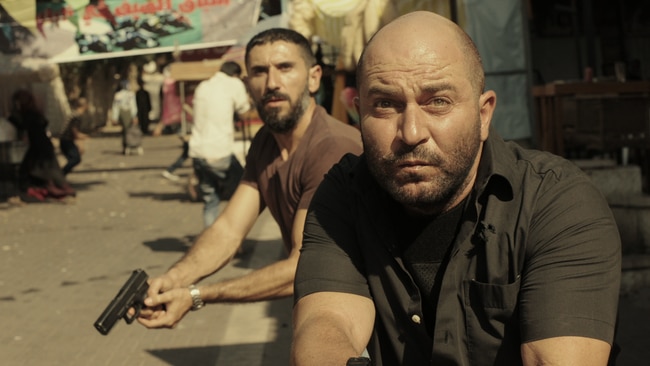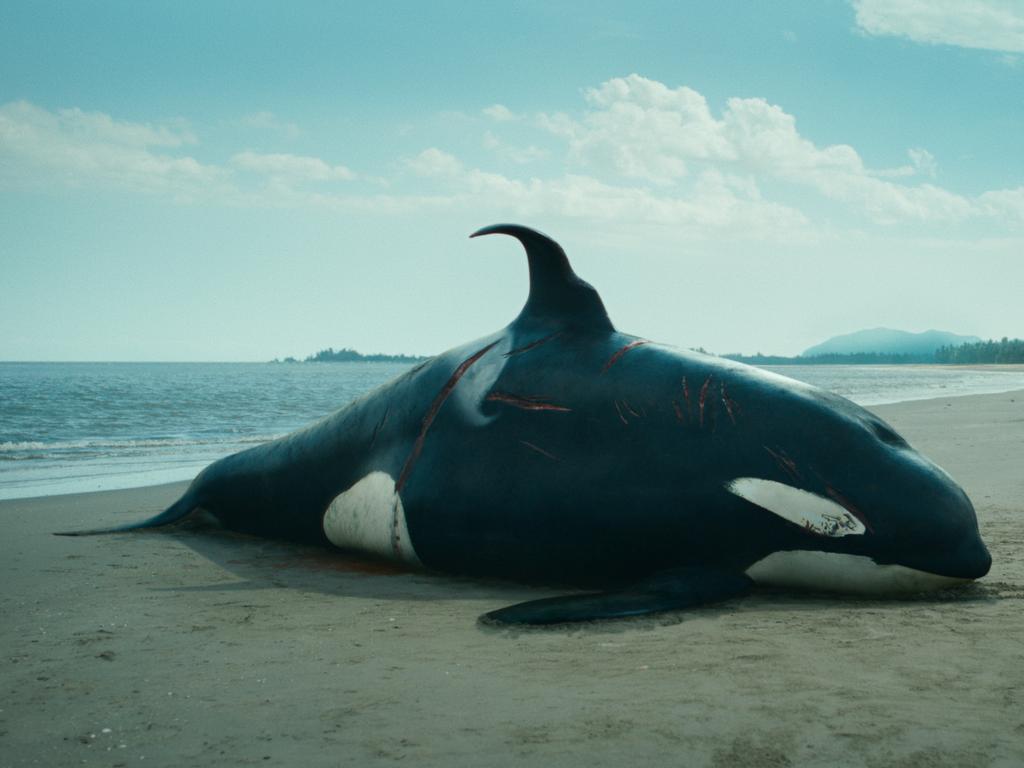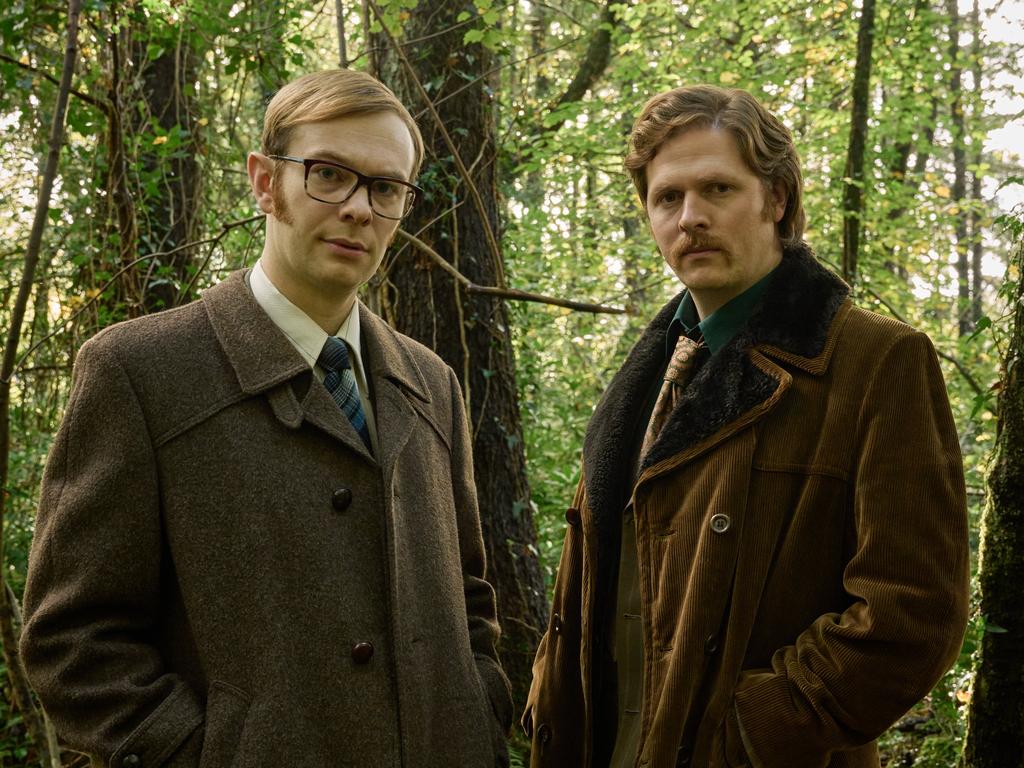Inside a secret Israeli military force: Fauda a must-see
Former soldiers created the series Fauda and give the Israeli action army thriller a visceral authenticity.

Since its debut in 2015, the Israeli action army thriller Fauda – Hebrew and Arabic for “chaos” – has become one of the world’s most popular TV shows after being picked up by Netflix a year after it started in Israel. I came to it late and recently binged the fourth season. Now I’m totally hooked again after growing into the earlier ones and immersively impressed by both its authenticity and the way it plays with the conventions of the action thriller.
There’s a wild strain of nihilistic outrageousness to the series. Its military characters are violent, highly trained chameleonic infiltrators, not just eternally on edge, they are the edge, going for guns in any split second. Few TV shows have this kind of momentum of action and the tension of suspense. Few are as visceral.
The show, while entirely fictional, follows the violent escapades of an elite undercover unit based on Duvdevan – meaning “cherry” or “cherry on top” – a branch of the Israeli defence Force. This is an arm of the Mista’arvim (“Arab Pretenders”), Israeli undercover units whose operatives disguise themselves as Arabs to gather intelligence, infiltrate protests and engage in counterterrorist operations.
Duvedvan’s soldiers, as is obvious in Fauda, must have features that match those of their Arab antagonists, and be fully proficient in the Palestinian dialect. They are fatalistically driven to save Jewish lives, a reflection on a tradition known as pikuach nefesh, the notion that saving a life should take precedence over everything, even if this means breaking some of the laws set out in the Torah.
The series was created by Avi Issacharoff and Lior Raz. Raz is a veteran of the real Duvdevan special forces unit and also plays the show’s lead character, Doron Kabilio, the tough, fearless, taciturn, Israeli soldier at the centre of the overarching narrative. Issacharoff, also a former soldier and a long-term friend of Raz, is a distinguished journalist and Middle East analyst, who covered the second intifada and is the author of two books – one about the Israeli-Palestinian conflict, and another about the 2006 war in Lebanon.
Many of Fauda’s stories are based on Issacharoff’s reportage and direct experience and his interviews with Hamas politicians and operatives, often in their houses. One of Issacharoff’s main goals when creating the series, he says, was not to represent terrorists as merely fanatical extremists but to show them as people with complicated emotions and relationships.
And the show has been applauded for the way it depicts the lives of terrorists as people with wives and children. He says one of the series’ biggest problems from a writer’s point of view is to show the Israeli public the other side, the enemy side. “Not demonising him as many of the media outlets are trying to do – but the opposite and making the audience still like the show, which is totally crazy,” he says. “I mean, it’s ‘Mission Impossible,’ and we don’t have Tom Cruise.”
He also points out in his many interviews that he and Raz wanted to show people, “the conflict as it looks from the ground level, as it looks from the sewage of the refugee camps and the small alleys of the West Bank.”
They wanted to give a face and a name for this terrible conflict. “We wanted people to understand, you know, that being an undercover warrior wasn’t just a kind of James Bond mission. But it had some very heavy prices on everyone – not only on the people that were fighting but also about their families, relatives, friends, etc. – and the same with the Palestinian side.”
By his account, Raz wanted to create something that was an opportunity for a kind of personal redemption for his time in the special forces, over 20 years, leaving with a severe case of post-traumatic stress disorder, always looking for the nearest door when any loud noise disconcerted him.
“I wanted to get everything off my chest”, Raz said in an interview with The Canadian Jewish News in March 2017. “We didn’t know it was going to be such a successful thing, even in Israel”, he added. “We thought the only people watching were going to be me and my mother, and Avi’s mother”.
In Arabic, “fauda” means chaos but in the late 1980s, when the first intifada began in Israel, Raz says the Arab population started to use this word as a symbol for “let’s go out and demonstrate”. But on the Israeli, undercover side, “soldiers started to use “fauda” when someone discovered they were Jews or Israeli, and when they got burned. They would call on the Walkie-talkie and say, “Listen, we have fauda”. This was the code for the rescuers to come.
As the journalist Ben White points out in a terrific story about the show in the Middle East Monitor, quoting literature scholar Karen Grumberg, this idea places the series in what’s known as the Israeli “shooting and crying” tradition. “The Zionist solider, a man with a conscience, loathes violence but realises he must act violently to survive; the dilemma causes him to weep while pulling the trigger,” she says. “Looking inward, he despairs at the violence he feels compelled to enact primarily because he fears his own moral corruption”.
It’s the kind of show that works what Clive James called “the magic trick” of classy TV. It “convinces you that the phantasmagoria you see in front of you is real and inevitable, and that the major characters are aspects of your own complex personality.”
The largely ensemble cast is exemplary – a mix of both Israeli and Arab actors speaking a combination of both languages with English subtitles. Outstanding though are regulars Yaakov Zada-Daniel as Eli, the careworn team leader and long-time friend of the problematic Doron, Itzik Cohen’s Captain Gabi Ayub, who hates sending his soldiers into battle, and former ballet dancer Rona-Lee Shimon’s Nurit, the only woman in the group. And formidable she is, too.
Raz’s Doron is at the centre and is impudent, free, rascally, courageous, and resourceful. With his shaven head and stubbly visage, he’s a moody outsider attracted to continuing engagement with the Unit by the lure of anarchic freedom. There is something always majestically aloof about him, a moody bastard, but he’s drawn to violent revenge.
Sometimes the ticking bomb of the story is literally a ticking bomb when Doron is around, Glock 17 pistol seldom absent from his hand; we are always looking out for him because he often can’t see the danger for himself. Our suspension of disbelief is so pronounced that we fear for him all the time.
Issacharoff says his friend as Doron is like “an exploding barrel”, a man always about to explode but you never know when. “You know that you need him, especially in radical situations and tough places, but you know that he ... there are some consequences for ... you know, if you would use these kinds of explosives, it will have an after-effect.”
The just-released fourth season sees the team expand its operations to Belgium and Lebanon. An angry Doron has been dismissed from the unit, not the first time, but is enlisted by a forgiving and avuncular Captain Gabi for a mission to Brussels.
In what should be a routine operation, Gabi, with Doron as bodyguard, wants to talk with an undercover agent called Omar (Amir Boutrous), secreted in a Hezbollah cell planning something massive. But double agents become triple agents and Gabi is kidnapped and ruthlessly interrogated, and all members of the unit find both their lives and those of their families in peril as a result. And Doron finds himself in a head-on confrontation with a well-organised and daring terrorist cell.
It’s again a harrowing season, superbly directed by Omri Givon, and photographed by Moshe Mishali, using up to four handheld cameras simultaneously, creating a sometimes deliriously immersive take, bursting with kinetic energy, on the many action set pieces.
When the unit is resting or at home with families the tone is cool and composed; in action it’s in-your-face filmmaking delivering pain and trauma. And it’s easy to experience the undercover operatives’ sense of disorientation and surreality when in battle and their enduring sense of the effects of becoming tired, ageing combatants.
Fauda is not going to solve the problems of the Middle East and doesn’t aspire to, even though it’s often condemned for not trying harder to do so. As Issacharoff says it’s simply a dramatic story. “It’s not an attempt to deter. It’s not something that gives up secrets. It’s just a story. A good drama. It’s inspired by true events, but it’s not real life. I mean, I think that reality is way more complex than even Fauda.”
Fauda streaming on Netflix








To join the conversation, please log in. Don't have an account? Register
Join the conversation, you are commenting as Logout